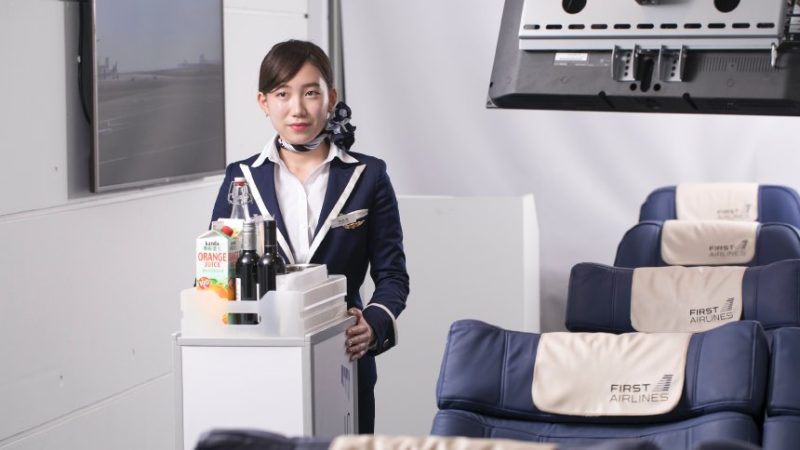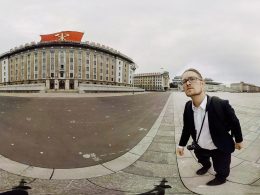From Tokyo to Rome in an afternoon: a Japanese company offers flight simulations for people who don't have enough time or money for a real city trip - including an on-board meal.
A trip to New York, Paris, Hawaii or Rome - for around 50 dollars and in less than two hours - not possible? Yes, or at least almost - with virtual reality, of course! First Airlines is the first company in the world to offer flights where passengers never leave the ground. Of course, this is either Business Class or, with a small surcharge, First Class. The fact that you can choose from these two options alone shows how crazy the offer is!
The Japanese are known for having few holidays and often not even taking them in full. What's more, almost nowhere else will you find so many freaked-out tech freaks. It is hardly surprising that First Airlines is based in Japan, specifically Tokyo.
The journey is the destination
"It's difficult for me to travel because it costs money and time," Hirokai Abe, the company's manager, told the broadcaster CNN. People can "travel away from their everyday lives at any time" - and in just 110 minutes, the company advertises on its website. However, the whole thing apparently works according to the principle: "It's about the journey, not the destination". The virtual holiday after the flight is almost completely absent - with the exception of a 360-degree VR city tour. At least short-term holidaymakers can avoid a few things, such as an expensive airport transfer, baggage costs and all the stress of the terminal.
Passengers are also served by steward staff, just like on a real flight. They bring drinks and snacks as well as a menu that varies depending on the destination: Cheescake for New York and salmon tartare and onion soup for Paris.
For many people, however, the flight is probably the most unpleasant part of the whole holiday and I don't even want to write about the food; and of all things, the package is the focus of First Airlines.
I'd rather fly in a virtual fighter jet at Fly and Race Simulations.
Source: CNN / Spiegel









